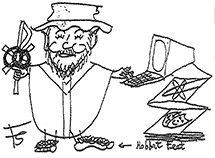When we moved into a house in Old Cabbagetown, about to start a family, a nine year old from next door came in to watch us arranging our things. Then she saw a crucifix on the wall, the kind St Francis of Assisi liked, a dying, naked Christ. She burst into tears:
“He must hurt!” she cried, and rushed home.
For many people, the dying Christ is a stumbling block. Indeed, the Greek word for stumbling block is “scandal”. The dying Christ scandalizes people who think God should be more comfortable, or people who think we talk too much of death. or people who think of Jesus as a loser.
There is a prevailing ideology in much of the world as we know it: a belief that some are losing, some are winners, some defeated, some victorious; It fits well with perceptions of social history, which is in some degree a science; perceptions that competitiveness has been necessary for human development. This is an issue where science and faith must part company, though we should look later at the role of opposition and obstacles in spiritual growth. But Christian faith embraces defeat and finds renewal by that means.
“The processes which Christianity offers people - prayer, worship, meditation - are about the possibility of getting in touch with your own defeats and putting those defeats in touch with the defeat of Jesus, in order that, like his life, your life can become part of the new and better future which is promised to us. Your self-understanding and mine… have to be turned round [to see] Jesus as the world’s ultimate friend, so that the world is befriended by its defeat, and not by victory achieved at the expense of other people’s defeat” Peter Selby, quoted by Rowan Williams, On Christian Theology, page 274.
While this is the opposite of much economic and political theory as we practice it now, it is in accordance with the principle in Carl Jung’s psychology. Jung shows that we all have a dark side, a side we are afraid of, a side where we fear the defeat of our ego and our daily mask: “a face to meet the faces that you meet”. Like T.S.Eliot’s J Alfred Prufrock, we feel our vulnerability and fear our defeat:
And when I am formulated, sprawling on a pin,
When I am pinned and wriggling on the wall,
Then how should I begin
To spit out all the butt-ends of my days and ways?
And how shall I presume?
Jung calls this source of defeat the Shadow, which would remind some of us of the old radio series in which “the Shadow knows!” And, says Jung, we must face the Shadow and integrate with it, gain its knowledge, to become whole.
So, as Christians, we face our own defeat, and learn its power and teaching, its capacity reveal to us our auto-genetic selves; we rise renewed, in a new life. That is a resurrection we can know, now.

